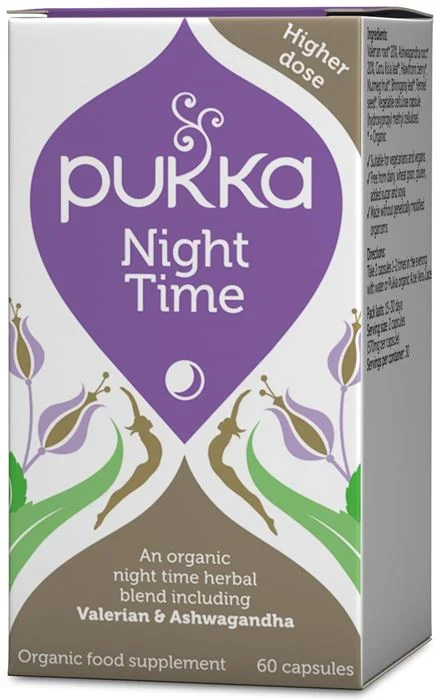Top Tips For A Good Night’s Sleep Naturally
When you have a little one, the idea of good night sleep can become akin to the idea of a Unicorn. A beautiful magical thought but pure fantasy.
But just as our little one should believe in the mythical, we should keep believing in a good nights sleep because unlike Unicorns, it really can become a reality.
MedicalHerbalist Katie Pande
So how do we get there? Obviously we can’t fast-forward to a time when our munckins are grown and no longer causing us sleepless night (and why would we want to these times are too precious), and hardcore sleep training isn’t for everyone (although personally I swear by it). So instead, to help us on our quest for a good nights sleep, I asked top Medical Herbalist Katie Pande to share her top tips for restful slumber.
"We all know that getting a good night’s sleep works wonders for our wellbeing but with the pressures of modern day living it’s hard to switch off easily when it comes to bedtime. Lack of good quality sleep can cause many unwanted symptoms such as anxiety, sugar cravings and play havoc with your hormones – all-in-all, lack of sleep can leave you feeling pretty poor," says Katie Pande, Medical Herbalist.
"Before pharmaceutical sleeping tablets were invented, our ancestors relied on medicinal herbs to provide them with a natural, calming remedy for a good night’s sleep.” adds Katie “ Below I have listed some my favourite herbs to help you get a great night's sleep.."
Valerian - a strong nervine and sedative to the central nervous system relaxing tense muscles whilst also encouraging an undisturbed sleep, healthy sleeping pattern and ameliorating stress.
Chamomile - a classic relaxant for the whole body but particularly the nervous system.
Lavender – a sweet smelling herb contains aromatic essential oils that reduce difficulty in falling asleep, promoting a more restful sleep and preventing night-time wakening.
Limeflowers - a particularly effective in helping to treat bad dreams and soothing a frazzled nervous system.
Oatflower - a restorative to the nervous system which calms shattered nerves, relieves emotional instability and helps to restore a sense of peace and tranquillity.
Ashwagandha - a strengthening tonic for nourishing the nervous and immune system, reducing stress and promoting a rejuvenative night’s sleep. Ashwaganda is a modern-day ‘adaptogen’, adapting to the needs of our body and mind. On the one hand it’s a tonic with the power to strengthen an exhausted and agitated nervous system; on the other, it’s a calming and restoring sedative. It will help encourage a rejuvenative night’s sleep by helping it relax but also energising body and mind through nourishing the adrenal glands so that, on waking, you are ready for the day ahead.
To balance irregular sleeping patterns and disturbed sleep, try Pukka Herbs’ Night Time supplements; an organic, herbal blend for a good night’s sleep.
RRP: £7.45 (for 30x capsules)
To further aid a good night’s sleep, Katie Pande, Medical Herballist recommends trying these before you go to bed:
Winding down before bed time is as important as stretching before exercise. Try drinking a calming herbal based tea, such as Pukka Herbs’ Night Time (£2.39 for 20 sachets) to relax the nervous system and lull you into sleep.
Meditate or practice yoga for 15-30 minutes every day to calm the mind. There are some great mindfulness beginner’s apps to get you started if you’ve not meditated before.
Avoid bright lights (that includes the bright light of your phone!) where you sleep – they will not help create the serene surroundings needed for sleep.
Avoid sugary foods, caffeine and rich and fatty foods too late in the evening, as these can upset the digestive system and prevent sleep.
Exercise for 30 minutes every day to relieve tension and stress.

























